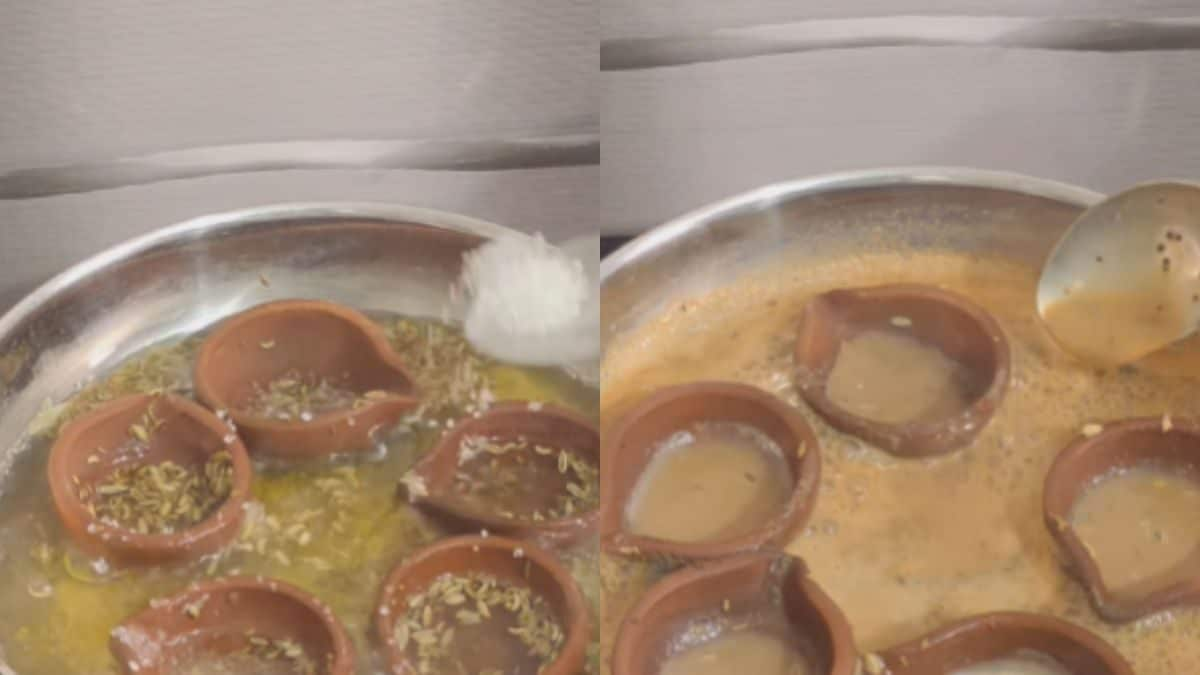Curated By: Purvi Khemani
Last Updated: February 24, 2024, 14:50 IST

Tandoori Chai Made With Diyas? Viral Recipe Video Leaves Desis in a ‘Bitter’ Taste (Photo Credits: Instagram/@taste.thee.best)
Viral Video: Tandoori chai prepared with Diyas in boiling water fails to impress tea lovers.
Ever wondered about the secret behind an authentic Tandoori Chai? It’s not your ordinary tea brewed on a gas stove with elaichi (cardamom) and adrak (ginger). Oh no! It’s a ritual, a tantalising blend of flavours where the tea isn’t just poured into a cup, but it’s first swirled into a hot kulhad, infusing it with a smoky essence that elevates its taste to another level. But hold on, why are we spilling the tea on this? Well, because a video showcasing a quirky twist to the beloved Tandoori Chai has set the internet abuzz, with reactions ranging from bitter disappointment to outright hilarity.
The controversial method? Adding Diyas (small oil lamps) into the Chai! The Instagram video, shared by @taste.thee.best, begins with a vessel of hot water containing Diyas, followed by the addition of sauf (fennel seeds), sugar, and jaggery. The Diyas are then boiled with all the ingredients, along with cloves, cardamom, and tea leaves, before milk is added. And while the accompanying voiceover adds a dash of humour, narrating how a Mumbai restaurant swears by this quirky technique, it seems the attempt to infuse a smoky, “mitti ka flavour” fell flat for many chai lovers.
“This is unique recipe, please delete it n let it remain unique,” remarked one user. “This unique recipe should remain a top secret. Kindly don’t share it on social media,” echoed another.
Since its sharing, the video has skyrocketed to a staggering 28 million views.
Soon, the video made its way to ‘X’ (Twitter) as well, where comments echoed the same sentiment of ‘distaste.’ “In the name of trying new things, please never try this, and if you try this, please do not offer it to your kids, remember the colour they use now a days for those clays is a red oxide and the clay itself is not suitable for food grade. May have mercury, arsenic,” warned one user. “My aunt who is a tea auctioneer and a tea taster will faint after seeing this. I myself being from the plantation family for generations and a planters wife is under a shock to see this,” came another.
The verdict is clear: some recipes are best left untouched.


